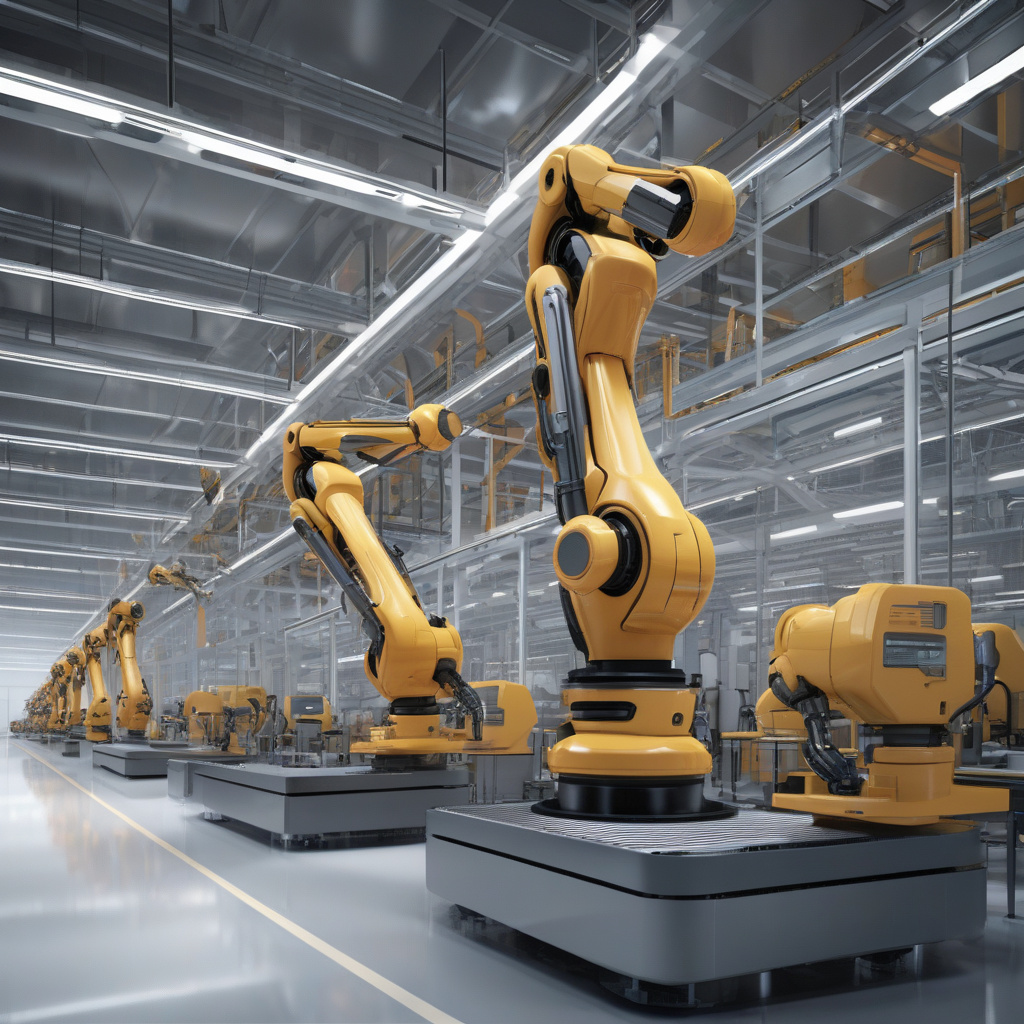Adoption of AI in Manufacturing: A Look into Trends, Strategies, and Challenges
Artificial Intelligence (AI) adoption in manufacturing is revolutionizing the industry, with 80% of firms actively investing in automation to enhance efficiency, enable predictive maintenance, and bolster supply chain resilience. This technology is not just a futuristic concept but a present-day reality that is reshaping how factories operate and produce goods.
Trends in AI Adoption in Manufacturing
One of the key trends in the adoption of AI in manufacturing is the use of predictive analytics to anticipate maintenance needs. By leveraging AI algorithms, manufacturers can predict when equipment is likely to fail and proactively schedule maintenance, reducing downtime and avoiding costly production halts. This predictive maintenance approach is a game-changer for industry players looking to optimize their operations and minimize disruptions.
Another prominent trend is the integration of AI-powered robotics in manufacturing processes. Collaborative robots, or “cobots,” are being used alongside human workers to automate repetitive tasks, enhance precision, and increase productivity. These cobots can handle intricate assembly processes, tedious material handling, and even quality control inspections, freeing up human workers to focus on more strategic and creative aspects of production.
Strategies for Successful AI Implementation
To successfully implement AI in manufacturing, companies need to develop a clear strategy that aligns with their business goals and operational needs. This strategy should involve identifying areas where AI can have the most significant impact, such as production planning, quality control, or inventory management. By focusing on specific use cases, manufacturers can effectively deploy AI technologies to drive tangible results and ROI.
Furthermore, investing in employee training and upskilling is crucial for the successful adoption of AI in manufacturing. Workers need to be equipped with the necessary skills to operate and interact with AI-powered systems effectively. Providing training programs on AI technology and fostering a culture of continuous learning can help employees adapt to the changing technological landscape and maximize the benefits of AI implementation.
Challenges in AI Adoption
Despite the significant benefits AI offers to the manufacturing sector, there are challenges that companies may face when adopting this technology. One of the primary hurdles is the high initial investment required to implement AI solutions. From acquiring the necessary hardware and software to training employees and integrating AI systems into existing processes, the upfront costs of AI adoption can be substantial.
Additionally, data security and privacy concerns pose another challenge for manufacturers looking to leverage AI. With the vast amounts of data generated and analyzed by AI systems, ensuring the protection of sensitive information and complying with data regulations are paramount. Companies must implement robust cybersecurity measures and protocols to safeguard their data and prevent any breaches or unauthorized access.
In conclusion, the adoption of AI in manufacturing is a transformative journey that holds immense potential for driving operational efficiency, improving decision-making, and enhancing overall competitiveness. By staying abreast of the latest trends, developing effective implementation strategies, and addressing key challenges, manufacturers can harness the power of AI to unlock new opportunities and propel their businesses forward in the digital age.
AI in manufacturing is not just a trend but a strategic imperative for companies looking to thrive in a fast-paced and technology-driven marketplace. Embracing AI technologies today will pave the way for a more efficient, agile, and competitive manufacturing landscape tomorrow.
AI, Manufacturing, Automation, Predictive Maintenance, Supply Chain Resilience
